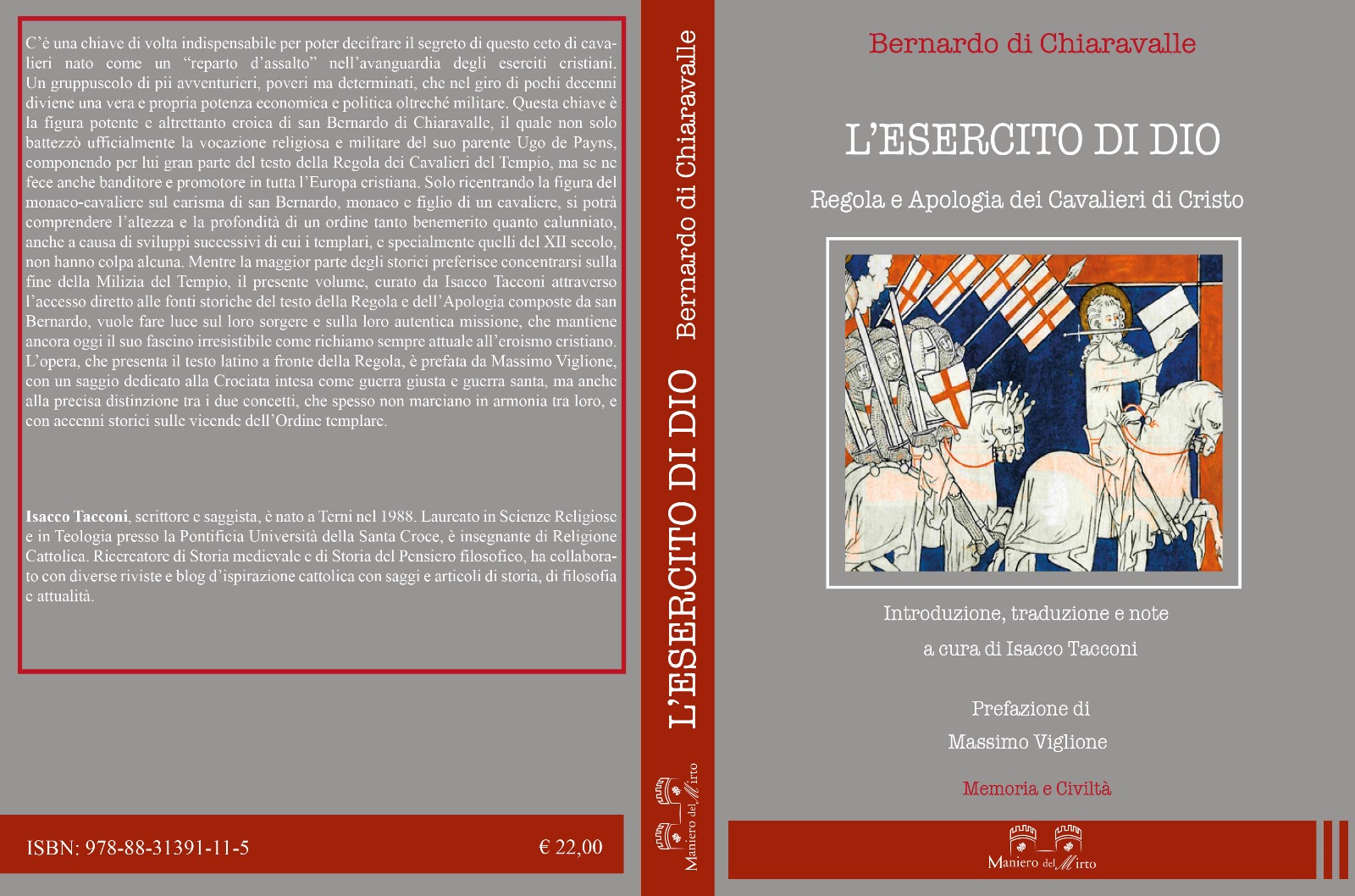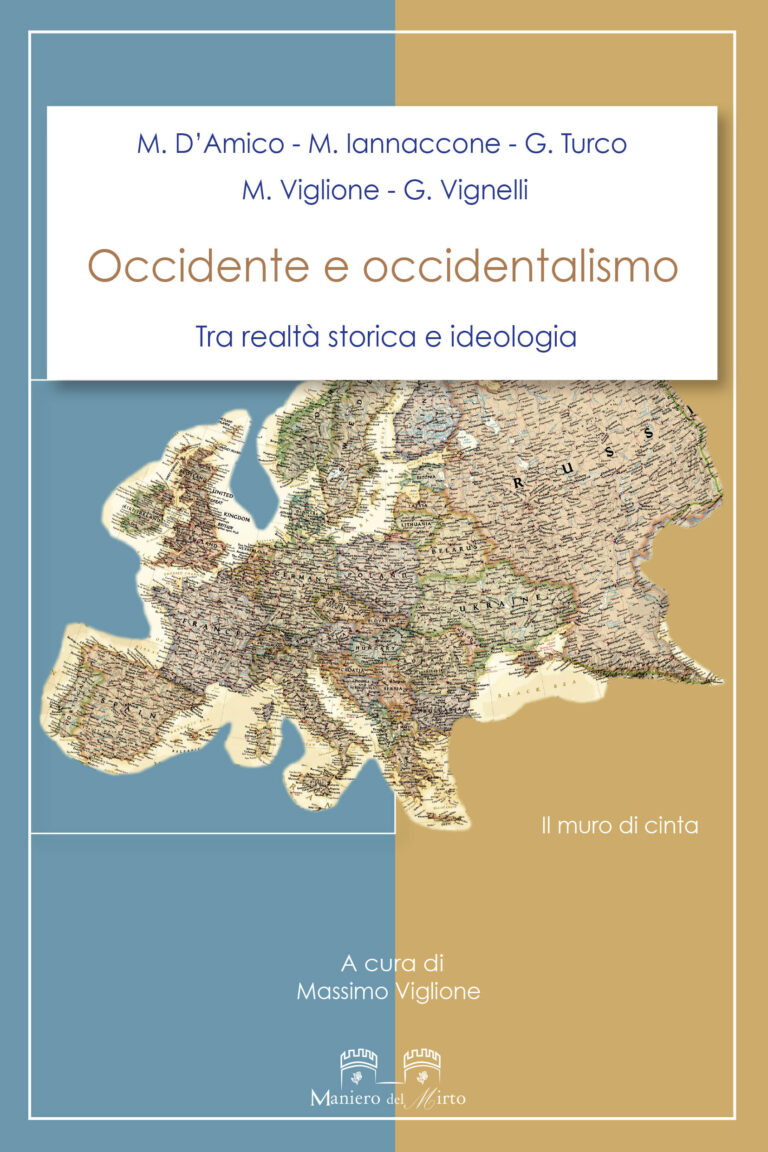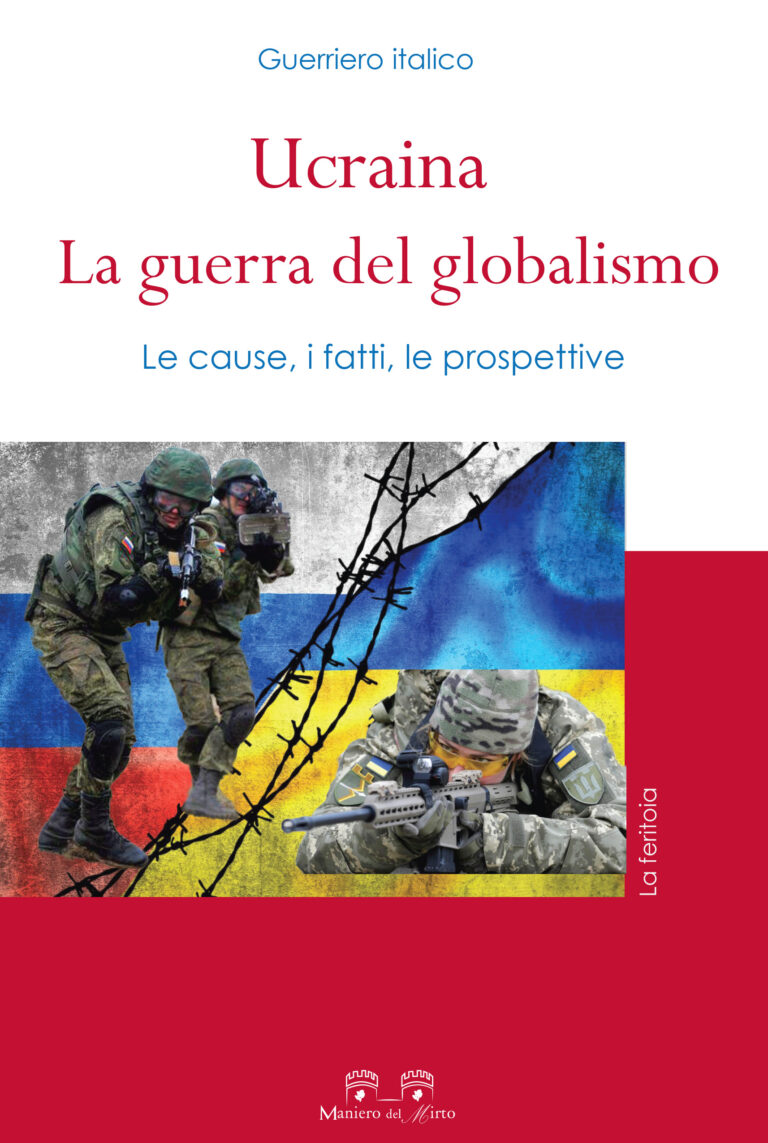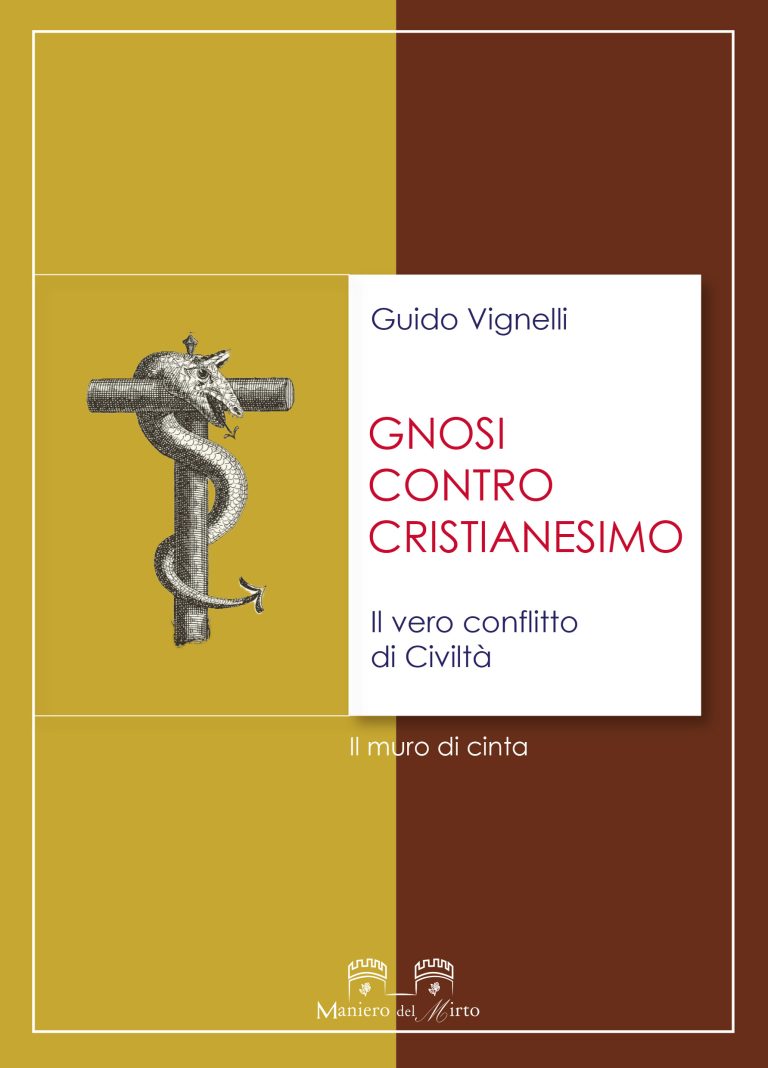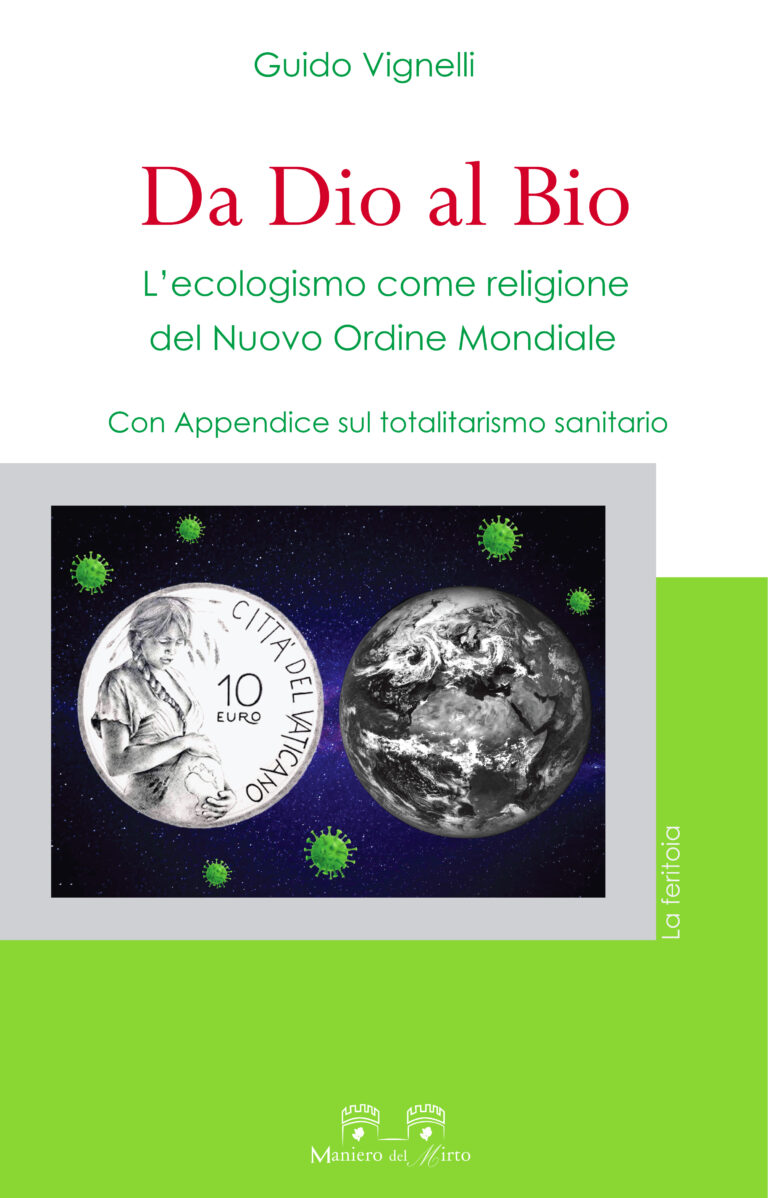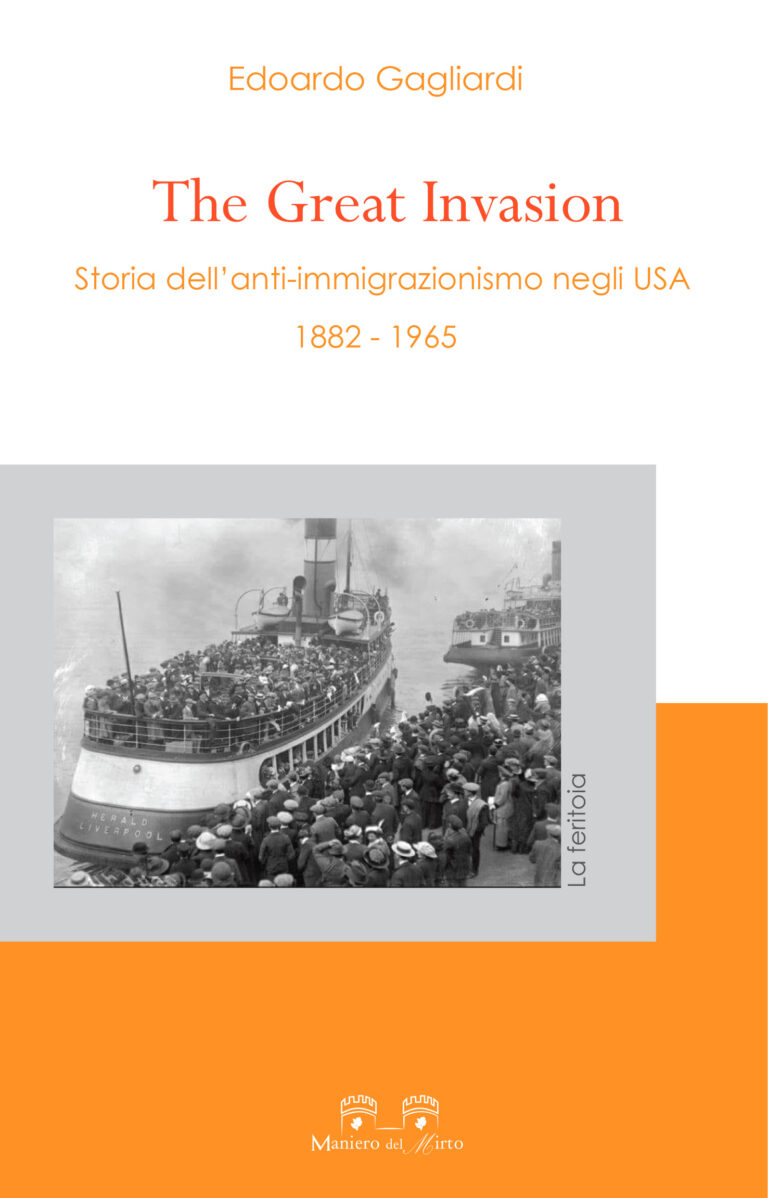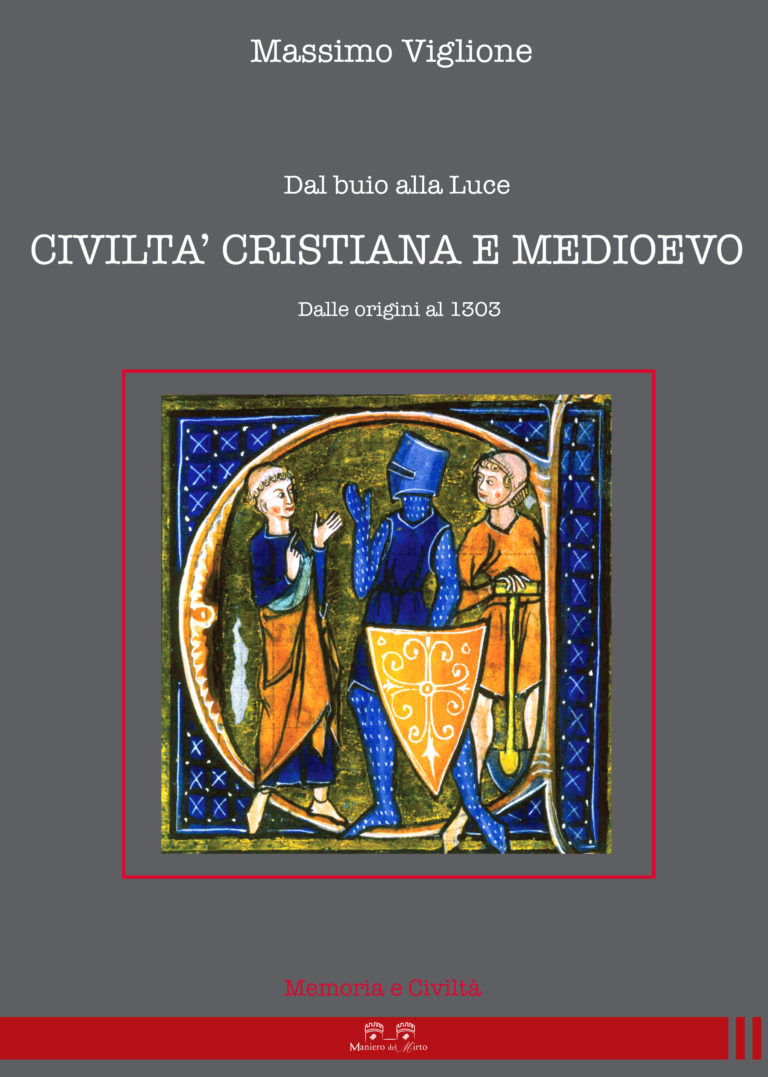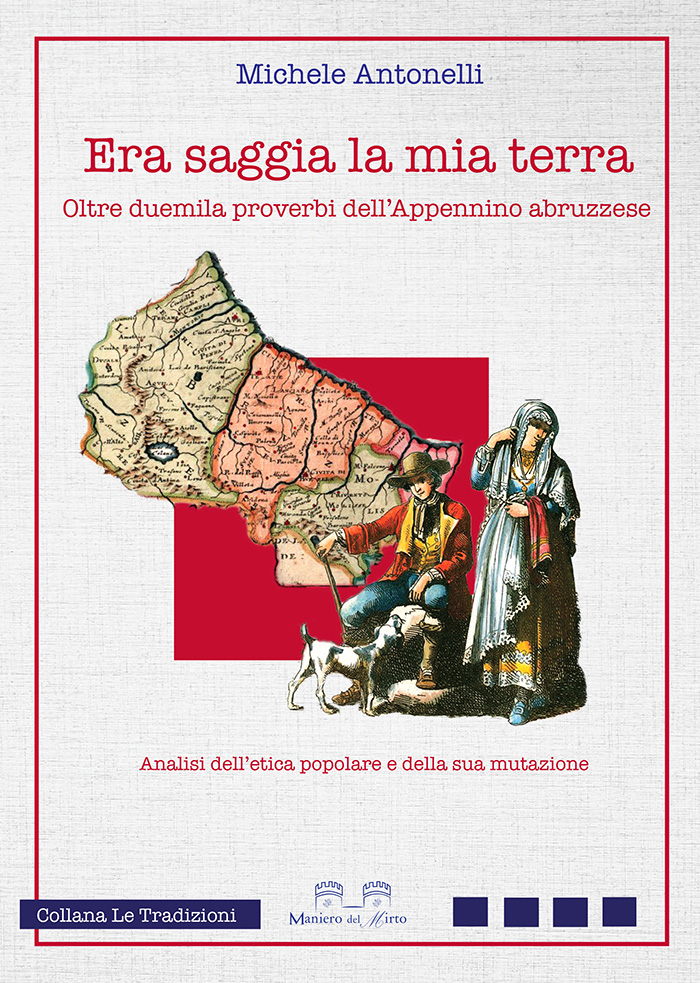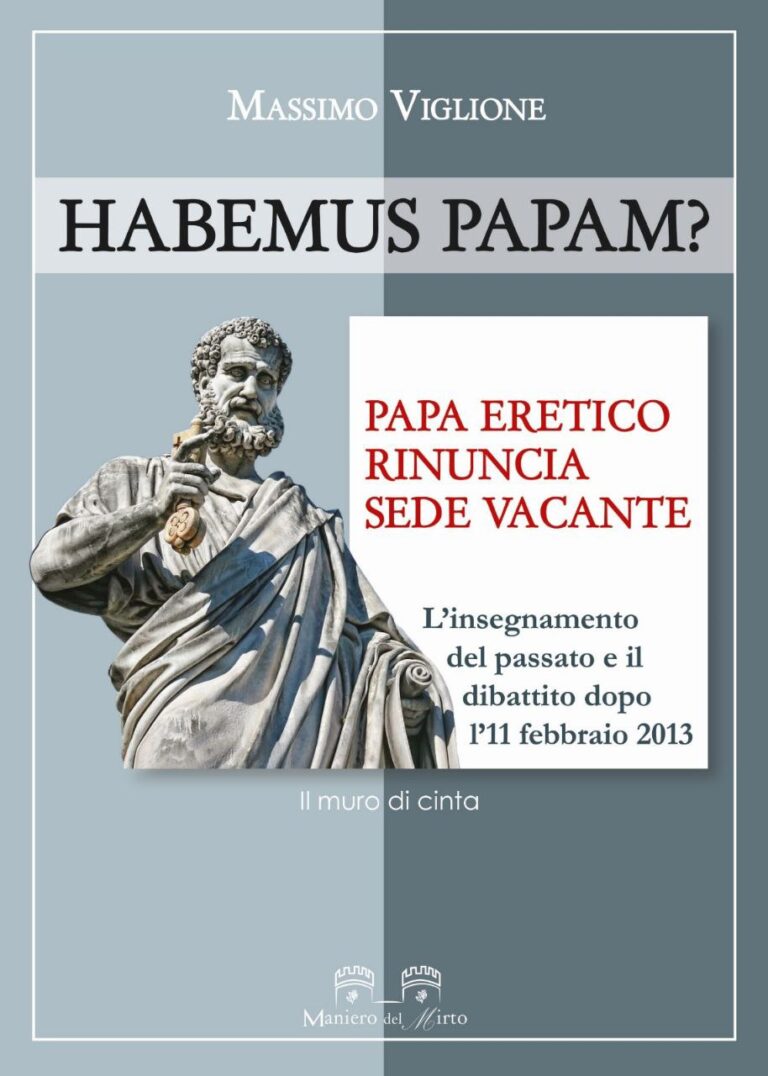
La ormai pluridecennale crisi della Chiesa Cattolica è divenuta progressivamente sempre più palese con il pontificato di Francesco/Bergoglio, i cui ripetuti errori dottrinali, devastanti la dottrina tradizionale, divengono ogni giorno più percepiti e denunciati, ultimamente anche da cardinali e vescovi.
Vari studiosi hanno ipotizzato l’invalidità della sua elezione o la caduta in eresia conclamata e pervicace. Ma il cuore del dibattito rimane la discussa e confusionaria Rinuncia di Benedetto XVI, con il contorno dei tanti suoi ambigui comportamenti tenuti a seguito della Declaratio dell’11 febbraio 2013. Al punto che, fin da subito, vi fu chi denunciò l’invalidità della Rinuncia stessa e, di conseguenza, dell’elezione del suo successore: tema centrale anche della discussione attuale.
L’autore di questo studio ci fornisce la ricostruzione del dibattito fra ecclesiastici, teologi, canonisti, esperti e studiosi che si sono espressi in materia, ricomponendo il mosaico come nessuno ha mai fatto finora, condizione indispensabile per la comprensione piena della questione stessa.
Come necessario aiuto e precondizione, l’autore ha anzitutto posto attenzione al dibattito teologico e storico plurisecolare sulla questione del papa eretico, per poi trattare anche alcune problematiche a latere di fondamentale attualità.
Infine, Massimo Viglione esprime il suo giudizio sull’intera questione, senza cedere né al sentimentalismo né alla passione ad arte fomentata, né agli interessati condizionamenti di scuderia di ogni genere, ma solo come contributo alla verità alla luce dei dati acquisiti, fornendo un aiuto concreto alla comprensione della unica vera Magna Quæstio: l’azione della Rivoluzione nella Chiesa.
C’è una chiave di volta indispensabile per poter decifrare il segreto di questo ceto di cavalieri nato come un “reparto d’assalto” nell’avanguardia degli eserciti cristiani. Un gruppuscolo di pii avventurieri, poveri ma determinati, che nel giro di pochi decenni diviene una vera e propria potenza economica e politica oltreché militare. Questa chiave è la figura potente e altrettanto eroica di san Bernardo di Chiaravalle, il quale non solo battezzò ufficialmente la vocazione religiosa e militare del suo parente Ugo de Payns, componendo per lui gran parte del testo della Regola dei Cavalieri del Tempio, ma se ne fece anche banditore e promotore in tutta l’Europa cristiana.
Solo ricentrando la figura del monaco-cavaliere sul carisma di san Bernardo, monaco e figlio di un cavaliere, si potrà comprendere l’altezza e la profondità di un ordine tanto benemerito quanto calunniato, anche a causa di sviluppi successivi di cui i templari, e specialmente quelli del XII secolo, non hanno colpa alcuna.
Mentre la maggior parte degli storici preferisce concentrarsi sulla fine della Milizia del Tempio, il presente volume, curato da Isacco Tacconi attraverso l’accesso diretto alle fonti storiche del testo della Regola e dell’Apologia composte da san Bernardo, vuole fare luce sul loro sorgere e sulla loro autentica missione, che mantiene ancora oggi il suo fascino irresistibile come richiamo sempre attuale all’eroismo cristiano.
L’opera, che presenta il testo latino a fronte della Regola, è prefata da Massimo Viglione, con un saggio dedicato alla Crociata intesa come guerra giusta e guerra santa, ma anche alla precisa distinzione tra i due concetti, che spesso non marciano in armonia tra loro, e con accenni storici sulle vicende dell’Ordine templare.
ISBN: 978-88-31391-11-5 pp. 215 € 22,00
Gli sconvolgenti eventi che hanno avuto inizio nel febbraio 2020 e che si susseguono senza sosta su diversi livelli operativi, trovando, al tramonto del 2022, il loro acme nella guerra d’Ucraina, sono stati l’occasione per la reviviscenza di un antico e mai sopito dibattito: quello incentrato sul ruolo, ma anche sul significato dell’esistenza stessa, dell’“Occidente” inteso come categoria geopolitica, ideologica, economico-sociale e storico-culturale.
Si tratta di uno scontro ideologico molto sentito, soprattutto nel mondo della Tradizione e del conservatorismo.
Questo libro approfondisce il concetto storico-politico di Occidente, la sua estensione ideologica che definiamo occidentalismo, il suo intrinseco risvolto che comunemente chiamiamo atlantismo, la problematica – inevitabilmente connessa – socio-politico-economica del liberalismo e del comunismo, con il ruolo della Chiesa Cattolica nel contesto generale dell’occidentalismo.
Per ottenere un risultato qualitativamente all’altezza di tale progetto, si sono scelti come autori alcuni noti e stimati intellettuali dell’area della Tradizione cattolica, i quali, pur nella similarità del loro giudizio ideale e pratico sulla questione, si differenziano per alcune sfumature storiche e politiche che rendono ancora più interessante il confronto.
Isbn: 978-88-31391-08-5 pp. 180 Prezzo 24,00 €
L’autore di questo libro, un generale della Forze Armate italiane, che, per ovvie ragioni, preferisce rimanere anonimo, ci descrive la realtà dei fatti e avanza deduzioni che possano avere valore oggettivo e anche un pur minimo valore predittivo.
Il testo ripercorre le cause interne ed esterne alla dicotomia Ucraina-Russia, con particolare attenzione al ruolo dei poteri globalisti e agli interessi delle potenze dell’anglosfera. Rivolge uno sguardo allo sviluppo delle operazioni militari evidenziando la particolarità dell’Operazione Speciale, effettivamente anomala nel quadro di un conflitto convenzionale. Al contempo, intravede la pervicace volontà dell’unipolarismo occidentale di “eliminazione” del nemico, cosa che, in un’ottica clawsevitziana, potrebbe facilmente trasformarsi nel risultato uguale e contrario.
Con evidente possibilità, il tutto, almeno nei piani dei poteri globalisti, dovrà servire a facilitare e sostanziare la presa di potere di “colui che deve arrivare”, per un tempo, al vertice del mondo.
Sarà davvero così?
ISBN: 978-88-31391-09-2 pp. 108 € 16,00
If the truth is one and the error is multiple, why is it that only one radical error prevails throughout history, which we can call Gnosi?
If we live in the era of the "end of ideologies", why does the Gnostic one continue to spread?
If we live in the age of secularization, why are old idolatries and magical practices back in vogue?
If we live in the era of progress, why does the dominant culture dream of returning to the Earthly Paradise by preparing a hell on earth?
If we live in the age of science and technology, why is emerging politics designing an ecological society of a tribal type?
The book intends to answer these crucial questions, highlighting the deep and ancient spiritual and intellectual causes of the contemporary crisis.
As a result, the "conflict of civilizations" in progress today is that between the residual Christian civilization and the growing revolutionary barbarism with its post and transhumanism.
Guido Vignelli is a scholar of ethics, the social doctrine of the Church and the science of communications. He was trained in the counter-revolutionary school of Catholic thought and is dedicated to defending the principles and institutions of Christian civilization. In 1982 he was a founding member of the Cultural Center Lepanto and in 1987 of the Association Famiglia Domani; from 1993 to 2013 he directed the project SOS Ragazzi. He writes articles and books, holds training courses, collaborates with traditional Catholic-inspired associations, magazines, radios and websites. E-mail: guidovignelli@protonmail.com
Series
Moralia et Scientia ISBN: 978-88-31391-05-4
Price: 20,00€
This volume, dedicated to the problem of the moral unlawfulness of vaccines that use cell lines from fetuses that are victims of voluntary abortion, presents a collection of twenty essays by senior clergy (an Archbishop and a Bishop of the Catholic Church), prelates, university lecturers, philosophers, doctors, jurists, historians, experts in the field and activists who, without any ideological or practical compromise, are committed to the defence of human life from conception to natural death.
The theme under discussion is very specific, but of great topicality and decisive moral importance. It is a subject that has deeply divided the Catholic world, even in its most conservative and traditional factions. Therefore, the aim of this book is to provide a clear, unequivocal, reasoned and documented answer to the moral problem posed, which is framed within the specific context of remote cooperation with evil.
As is only natural, each author, in his or her own contributions and according to his or her own expertise, has also addressed the main themes of his or her own field. However, the whole work is never abstracted from the reality of the political and socio-economic situation in which we find ourselves living since February 2020, to which some authors have devoted specific attention.
The resulting picture is undoubtedly in-depth, food for thought, and it includes useful clarifications for understanding both the moral problem posed and the current dramatic situation.
Presentation by the Curator
Preface by Monsignor Carlo Maria Viganò
Articles by:
Monsignor Athanasius Schneider
Don Curzio Nitoglia
Dom Giulio Meattini (OSB)
Massimo Viglione
John-Henri Westen
Giovanni Turco
Clara Ferranti
Gianfranco Amato
Paolo Gulisano
Pilar Calva Mercado
Wanda Massa
Cristiano Lugli
Daniele Trabucco
Francesco Lamendola
Marilena Maioli
Contributi di:
Silvana De Mari
Nicodemus
Antonio Bianco
Alfredo De Matteo
Series
Moralia et Scientia ISBN: 978-88-31391-04-7
Price: 28,00€
“The Great Reset is coming”, “Nothing will be the same again”, “daily habits will change”: this is how the mass media announce a new Revolution. The old environmental movements have radicalized into the new ecological movements. Cybernetic centers propagate an "ecological culture" that sacrifices man for the salvation of nature. The political-economic potentates try to impose a "New World Order" that replaces families, cities and nations with a conflictual, tribal and impoverished cosmopolitanism. The health system is taking advantage of the Chinese virus crisis to prepare for an ecological totalitarianism. The new religious hierarchies are engaged in a "pastoral revolution" that overcomes the worship of God in that of Mother-Earth.
Ecology is a false religion and a new idolatry, which contrasts not only the Christian faith, but also reason and even nature understood as a world ordered by a creator, redeeming and provident God. (Italian version)
Price: 15,00€
The phenomenon of immigration to America is one of the most impressive movements of human masses in history: a political, cultural and demographic upheaval never seen before. Hence the need, in the US, of the Immigration Act, the immigration laws which, until 1965, tried with mixed success to limit immigration.
This book, drawing on original sources and statistical data, tells the story of that immigration and those Immigration Acts, the context in which they were conceived, the protagonists who proposed and introduced them, their achieved and unrealized goals, the ideologies that were upstream. A cross-section of American history that is also partly European: a way to understand an issue, immigration, which continues to be of current relevance, both in the United States and in Europe. (Italian version)
Price: 13,00
More than a mere historical reconstruction of the Middle Ages, it is a general exposition of medieval Christian civilization, starting from the dawn of ancient Christianity and arriving at the beginning of the fourteenth century (Schiaffo di Anagni), or on the threshold of the great and dramatic changes of the first modernity. All aspects of this civilization are treated, as indicated below (we report the text of the 4th cover, which provides the complete picture of the subjects dealt with), in such a way as to provide a complete and organic picture that allows you to acquire precise and timely knowledge of the whole history of the first thirteen centuries of Christianity of medieval society and civilization in its various and different phases, from the dramatic beginnings to its full unfolding and the profound reasons for its decline, with a qualified description of the incomparable spiritual, theological, political, juridical, economic, social, cultural and artistic that that world has been able to produce and give us.
Here is a picture of the topics covered:
Jesus Christ - the birth of the Church - the first centuries of Christianity - the ancient heresies - Rome and Christianity - the turning point of Constantine and that of Theodosius - the Patristics and the Councils - the barbaric-Germanic world - Eastern and Irish monasticism - St. Benedict and his world - Justinian and Byzantine society - Leo the Great, Gelasius and Gregory the Great - the Islamic invasion - Clovis and the role of the Franks - the Carolingians - Charlemagne and the renovatio-translatio Imperii Norsemen, the Hungarians and the Slavs - the sacral monarchy - the origins and development of feudalism - the feudal civilization - the social trifunctionality - the Chivalry - the Kingdoms of England, France and the Iberians - l 'Germanic Empire - Cluny and the apotheosis and crisis of monasticism - the crisis of the feudal Church - the Reichskirche – Gregorio VII e la Riforma – san Bernardo e i cistercensi – l’epocale scontro Papato-Impero – le crociate e il loro reale significato – gli ordini monastico-cavallereschi – il Sacro Romano Impero – l’universalismo imperiale e gli Hohenstaufen – Innocenzo III e l’universalismo papale – Bonifacio VIII e lo Schiaffo di Anagni – l’affermazione dello Stato nazionale – la rinascita delle città e la civiltà comunale – il mondo dei mercanti e dei cittadini: confraternite e prime corporazioni – il mondo dei frati: Francesco e Domenico – la problematica francescana – le eresie pauperiste e gnostiche – l’Inquisizione – il millenarismo – gli ebrei e le minoranze – la rinascita della cultura dalle scholæ to universities - the Scholastica - the rebirth of Roman law - legal thought - political thought - economic thought - historiography - literature and poetry - cycles and sagas - great travelers - early Christian, Romanesque and Gothic - music and the minor arts - the civilization of cathedrals - symbolism - St. Thomas Aquinas, Dante and Giotto - the world of pilgrims - the great jubilee - lived universalism - medieval man and everyday life - communitarianism - holiness - mentality: order, hierarchy, fidelity - freedom and privilege - Nutrition, climate and medicine - the role of women - technical and scientific progress - from universalism to individualism - towards modernity - the sense of a civilization. (Italian version)
Price: 33,00€
In this text, the author collects over two thousand proverbs from the Abruzzese Apennines (valleys of the Ratto, Velino and Aterno rivers, in the municipalities of Montereale, Borbona, Cittareale, Posta, Antrodoco and surrounding areas), grouping them by themes. For each topic, he identifies the dominant moral values in traditional rural communities, explains what advantages the respect of these values brought to the people and observes how people's mentality has evolved, in recent decades, regarding these values. Finally, it identifies the direct causes of these combinations and indicates the consequences in terms of imbalances, sometimes lethal, induced in our society. (Italian version)
Price: 27,00€



